From the 1st to the 13th of August over the summer this year, I was part of the Planetary Futures Summer School in Montreal which was housed at the Milieux Institute for Arts, Culture and Technology at Concordia University and led by Orit Halpern, Pierre-Louis Patoine, Marie-Pier Boucher and Perig Pitrou. My attendance was partially sponsored by Concordia University (Summer School Fellowship) and the University of Westminster (Graduate School, Globally Engaged Research – Doctoral Scholarship Scheme). The school asked the question ‘How shall we inhabit the catastrophe?’.
The notes below titled Slowness is my report from my experience of the school.
There is a particular challenge in writing the abstract. There is an even more of a particular challenge in writing the specific. In between these two possibilities are often experiences of writing which rely on the frame of specificity to exist but operate because of loose material threads that somehow keep things together. The task of writing about the planetary futures summer school that took place earlier this August has been this effort of flux – an interesting inability of constant ground. Like the summer school itself. While the school took place in Montreal and situated itself in Quebec, the flux of the world in the fabrics of conversation, resisted that place. Extraction, Colonialism and Speculation as themes for the school were materially explored through sites and arguably local explorations – but our minds wandered, exchanged, walked, confused. We are tasked with the planetary which by definition was post-Montreal. Like the beautiful little coffee shop next to the Concordia University EV building that served exceptional bourbon coffee but refused public wifi installation.
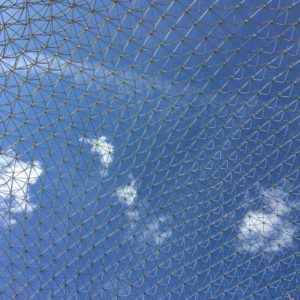
Figure 1: Montreal Biosphere
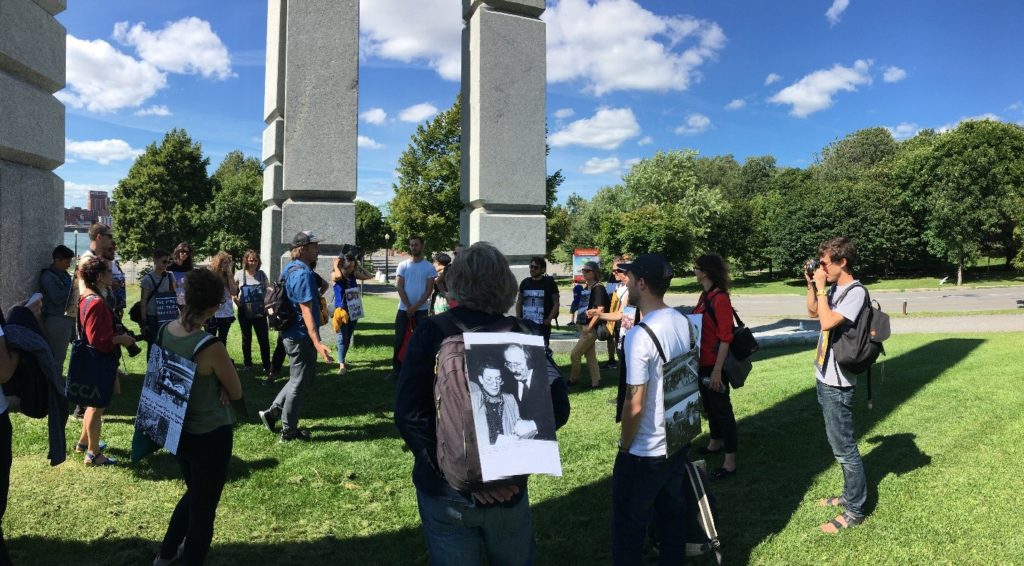
Figure 2: Speculative architectures workshop and interventions with Jean-Francois Prost, at Expo 67
On August 7th 2017, Tricia Toso and Marie-Eve Drouin-Gagne led a canal walk by the Saint Laurent Seaways discussing the colonial and industrial histories of the river ways. In an act of experimentation, to situate the body in space and time, Tricia suggested at a point, a collective slow walk. The group slowly, consciously, aware of one’s breathing, stepped on forward- one step at a time – processing thought and manually moving in slowness. How is our knowledge conscious with the world I thought? Passersby looked at the group, wondering if it was some kind of an art experiment. Perhaps there was art in production. Who could tell? Was it in the site or was it somewhere else?
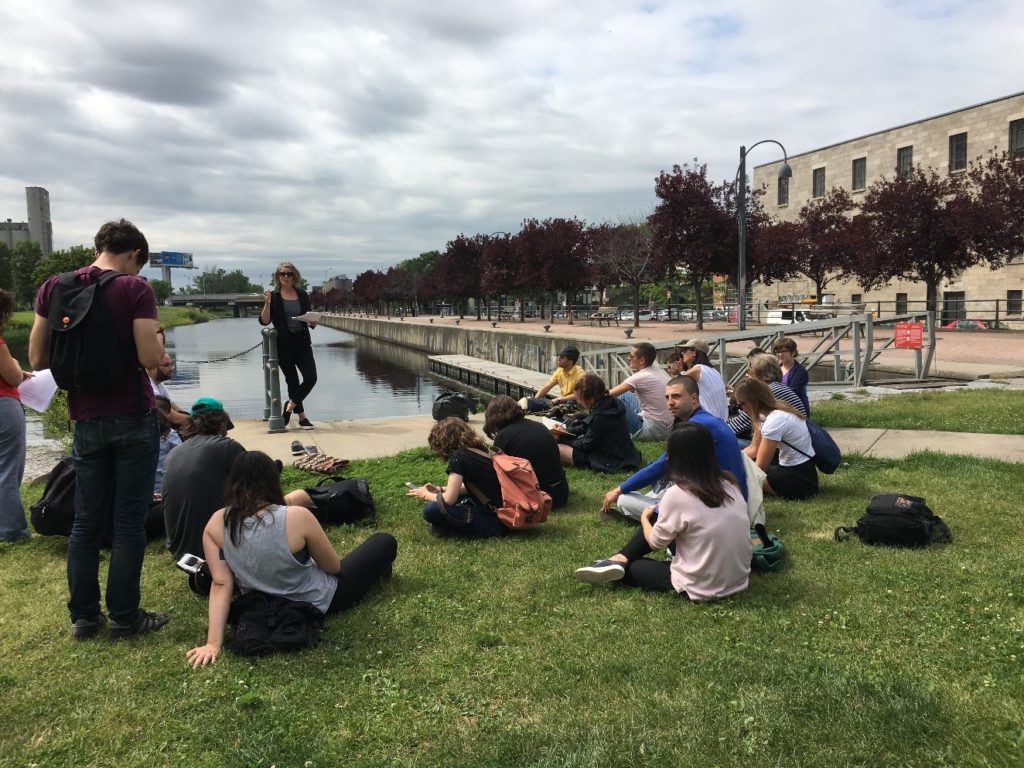
Figure 3: Tricia talking to the school about ‘decolonising infrastructure’
I felt that slowness on August 3rd too, as our yellow coloured school bus ascended upon the Malartic gold mine which is Canada’s largest. There was something eerie about the wind and the colour of space. From the top, we gazed at a scene which in its fantastical core, stood at ranks with the scores of images that supplied the visual mind with several science fiction earthly extractive worlds. We were here, walking on rocks. We were here, imagining as if we were somewhere else. From the tonnes of dark earth, a system of human technological history had deciphered that shiny gold oozed. The mine sells most of its gold to banks. The gold mine was here but the gold mine was everywhere too. Speculation we thought cast this labor of human and machine into broader webs of operation. We thought there were spatial borders, but were they really?
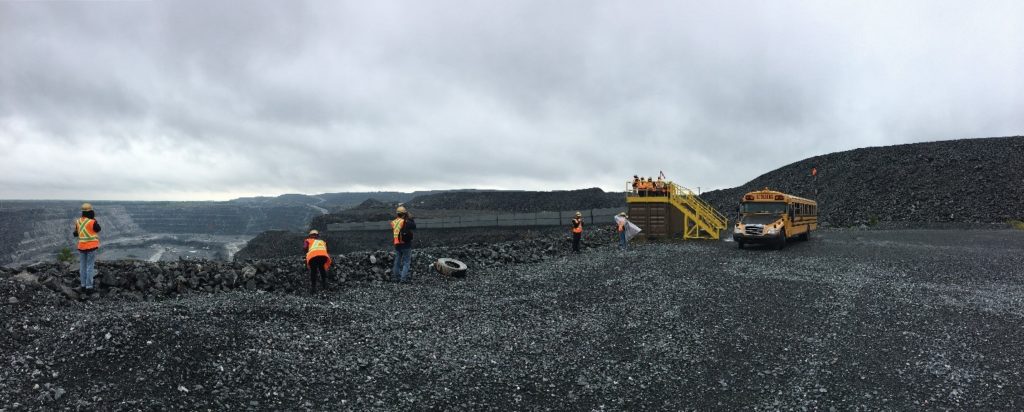
Figure 4: researchers documenting the mine
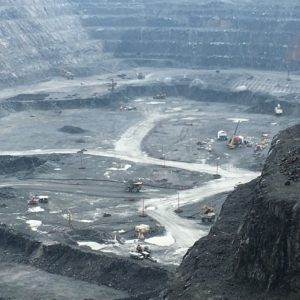
Figure 5: machines on the surface
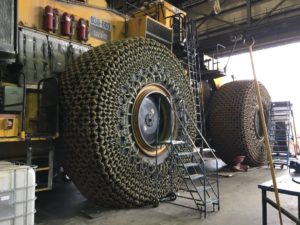
Figure 6: massive machines
There was slowness on August 12th as a group of us sat down at the SenseLab to brainstorm a response to the presentation made by Bernard Foing who spoke to us about prospective human habitats on the moon. We sat amongst moments of silence, as some of us recalled Sarah Sharma’s August 10th talk “In the meantime, no exit”. There shall be no exit! we said. Instead, there shall be a very slow queer party in upward mobility, that shall perhaps never arrive. The sensibilities of resistance was strong with this community and at the buzz of Day 12, there was little hesitation. It was okay, we thought to not arrive on the moon. We were of the earth and this is where we want to be. This is where life is community.
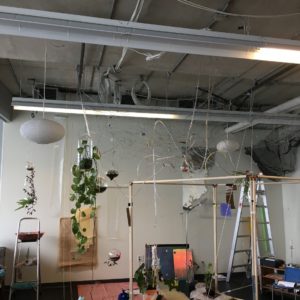
Figure 7: The SenseLab
In the spirit of the queer planetary futures we shall all perhaps one day occupy, there was karaoke that evening at Notre Dame Des Quilles where we sang over wooden bowling lanes as our moving bodies occasionally spilled the beers we tipped an extra dollar for. There was slowness in this celebration too, because it was all to come to an end soon and there shall be taxis to airports to be paid for.
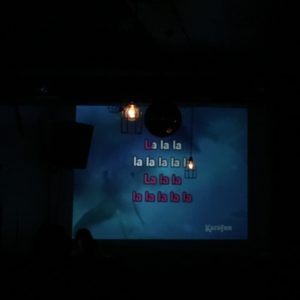
Figure 8: to sing along
There was solidarity in the making. I remember on the 8th of August, a member of the community took us for a short walk in Kahnawake Territory near Montreal. The word Kahnawake meant ‘by the rapids’ and the members of the Kahnawake were the caretakers of these waters and spaces. At a time where across Canada in many other indigenous lands, the struggle against extraction and colonisation continues as ever, the site was a moment of reflection of how violences have changed the course of history and has redrawn relationships. Speculation is not even aesthetically separate from this history, just as extraction is not separate from colonisation.
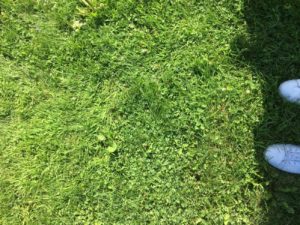
Figure 9: standing on land and life
Solidarity is often found through moments of kindness. Like the bus driver running a private service who sympathetically picked us up at Habitat 67 (currently private housing, originally designed by Moshe Safdie as part of the Expo 67 campus) as we struggled to find a mode of public transport to take us back to the centre. “The bus is only full during peak hours” he said, as people go to work and come back home. A certain kindness and informality managed the flow of the school. This humanness of the school somehow enabled a bizarre openness, where across political disciplines, the community chatted through ways of knowing, ways of being. It was anchored in the task of the future – where the present was the only way to be with. It was about the politics of the present but meanwhile, in the gaps between the present and the future, there shall be speculation, often through fiction but where life shall always take precedence.
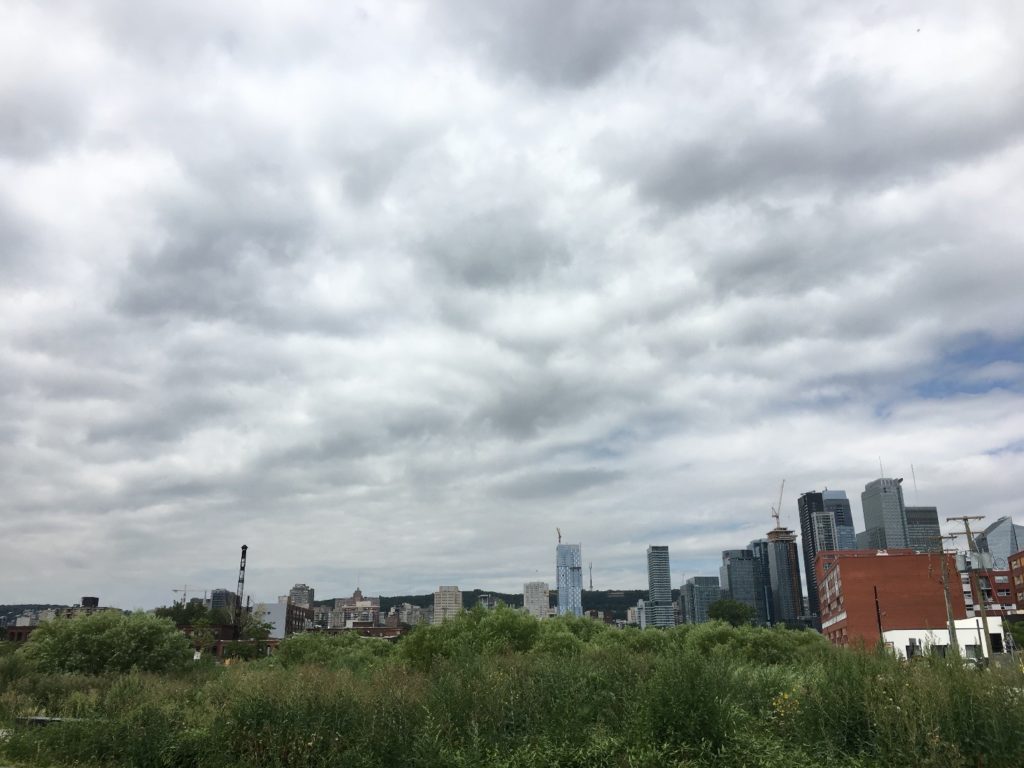
Figure 10: Montreal
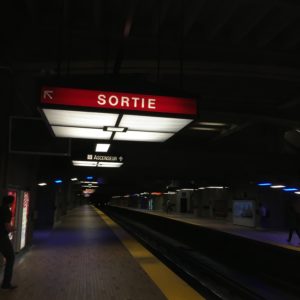
Figure 11: Montreal Metro
For more information about the school, please visit http://www.speculativelife.com/event/planetary-futures-summer-school/. Try and catch traces of our activity with the hashtag #planetaryfutures on Instagram and other social media.
